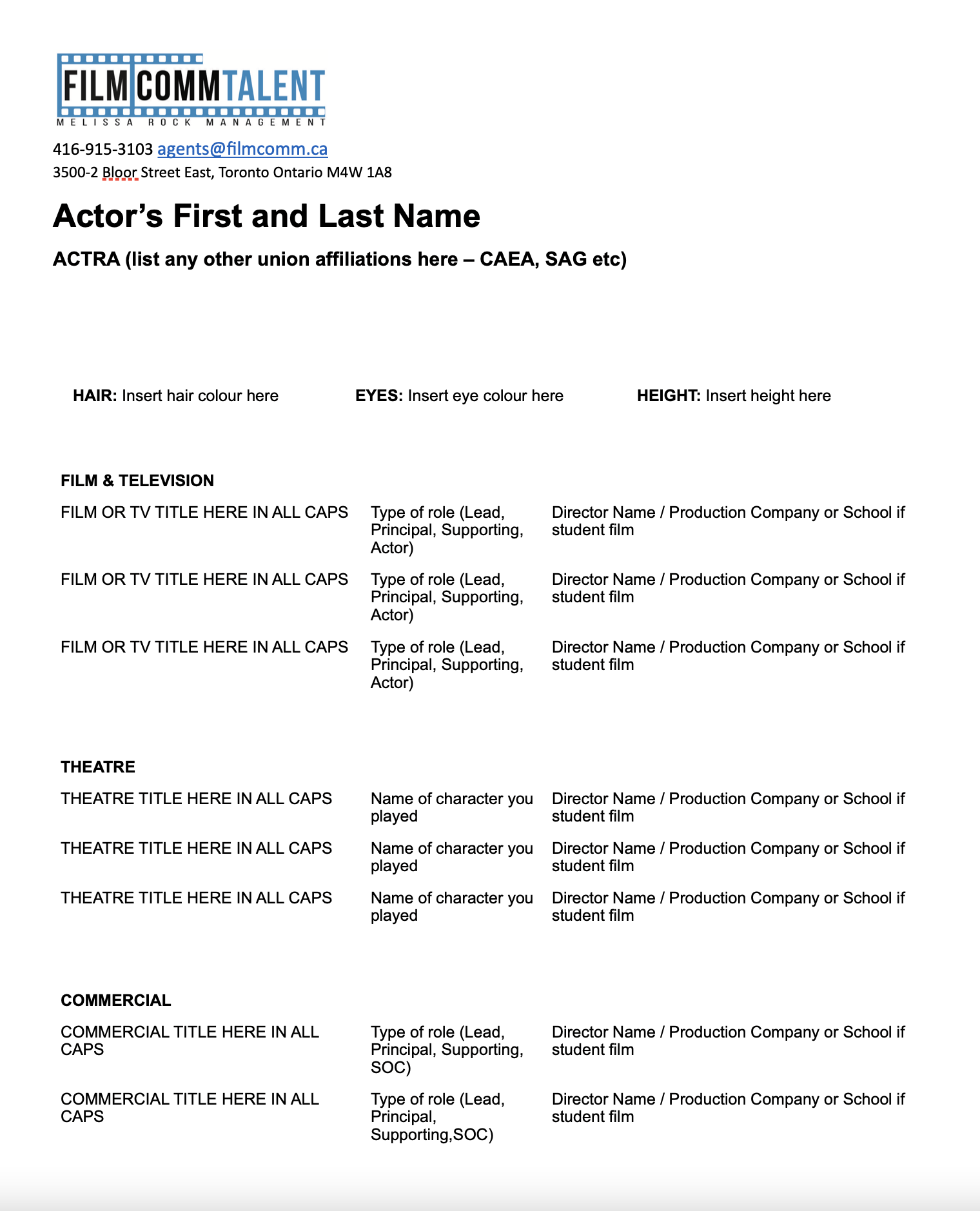RESUME
Writing your resume is an art form

Professional Resume
Writing your résumé is an art form. There are courses taught in schools, seminars, webinars, and even a specific industry of professionals that will write one for you. The audience to whom you intend to give your résumé will weigh heavily on the style and content you choose to include.
A corporate résumé can include many more attributes and space fillers than that of an acting résumé. Lengthy and wordy paragraphs describing mundane tasks to make you seem like the ‘bee’s knees’ is acceptable and even encouraged in the corporate world.
We all know the acting world is far too fast paced and blunt. Brass tacks, that’s all. No fluff, no filler, just fact.
When writing your acting résumé, there are three key factors to consider:
Layout – it’s pretty universal, stick to a simple template
How current it is – update as soon as you film a project.
Your agent‘s requirements – does it follow the guidelines they have asked you to adhere to?
When it comes down to writing it all out, make sure you follow the layout:
Film/Television
Commercial -more experienced actors won’t list them, they will state “available upon request”
Training
When writing your projects, fill them in chronologically with your most recent project first.
Project Name/Role/Production House
Do not list the title of the role (eg. man on the bus). Instead list the category of role i.e actor role, principle role, co-star role, lead role etc.
When it comes to commercials the same is needed (SOC, PP)
Here is an example of format that must be used
Parents of actors are always eager to include notes on school plays, drama club awards etc. Please do NOT do this. It is not something that any serious director wants to see. Less is more when it comes to an acting résumé. When you are starting out it seems right to try to pad your résumé with music videos, stock photography shoots, etc. Directors are wise to this and it only shows them that you are a BEGINNER and more so, somewhat unprofessional. It is alright to be a beginner! It is okay not to have a whole lot to put on a résumé, we all have to start somewhere. By not listing ‘Mickey Mouse’ projects, you are at least showing them that you are well trained, well informed, and have an idea of what a professional résumé should look like. Simple, clear, and listing only projects that are relevant to Television and Film.
Never ever list background on a principal résumé. This only shows directors that you are background performer not worthy of a principal role. Actors assume that it shows on-set experience but it works in the reverse. It highlights to casting that you are a background actor.












